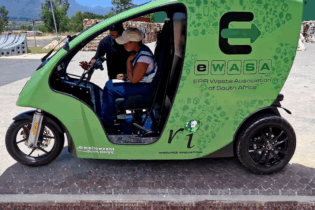The developers of wind farms and solar energy installations will have to hold on to their hats for a short while longer. National Treasury has extended the deadline for financial close on the first round of the independent power producer procurement programme for renewable energy.
The deadline, initially scheduled for June, has been extended for the third time, this time to the end of October. The delay comes as government, lenders, project developers and contractors grapple with the complexity of ensuring all the necessary boxes have been ticked and conditions precedent satisfied on the 28 projects which are collectively worth about R50 billion. The delay is costing the bid parties money. They have locked their suppliers into 300-day pricing agreements which have now elapsed. Bidders are now working frantically to extend the validity of their bids to the end of October. In some cases they have had to renegotiate contracts. Last December, 28 consortia were announced as preferred bidders in the first round of the programme. They included 18 solar photovoltaic projects, eight wind projects and two concentrated solar power projects. Bidding for the second round closed in March. The third round, due to close in August, was postponed to allow government time to conclude the first two rounds. It is only once financial close is reached that draw-downs become permissible. Setting a target of a little more than six months for financial close was ambitious, says Johan van der Berg, CEO of the SA Wind Energy Association. “This is not the norm in renewable projects in the global market – the amount of work involved in closing each deal is immense.” Multiple government ministries, provincial authorities, developers, contractors, equity providers, BEE partners, communities, banks, development agencies, firms of attorneys, firms of accountants, Eskom, have to operate in lock-step before government can sign off on the projects.
Each project is responsible for its own funding (usually 70% debt, 30% equity), however the renewable energy programme – and the commitment to purchase the power produced – is underwritten by government.
“These are massive projects – each project requires a capital investment of R1 billion to R3 billion,” says DavinChown, a director at Mainstream Renewable Energy. “The banks will not sign off on their loans and equity partners will not release capital without National Treasury’s go-ahead.”
It could be said that a three-month delay in a process that began with the White Paper on Energy in 1998 and the Renewable Energy White Paper in 2003, is minor in the scheme of things. “We are talking about deals that combined are bigger than the arms deal, bigger than Gautrain,” says Venn. “That said, reaching financial close will provide foreign investors with a lot of comfort. Investors have spent hundreds of millions getting to this point and they are anxious to turn the first clods of soil.” Source: moneyweb.co.za






